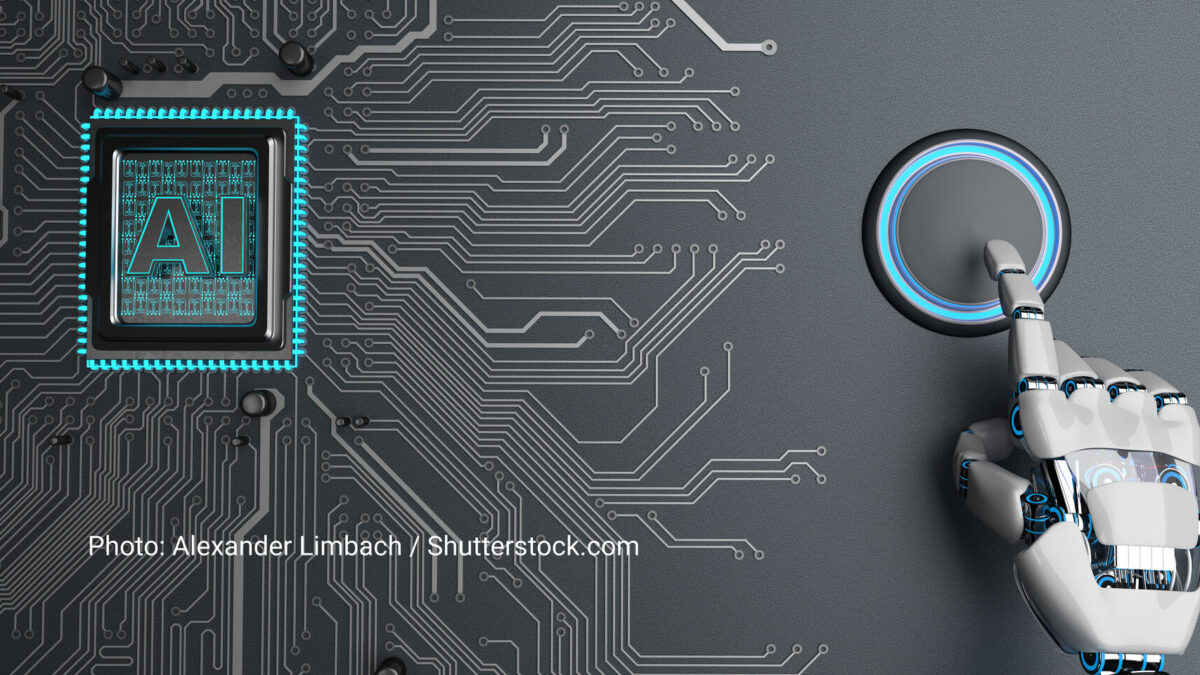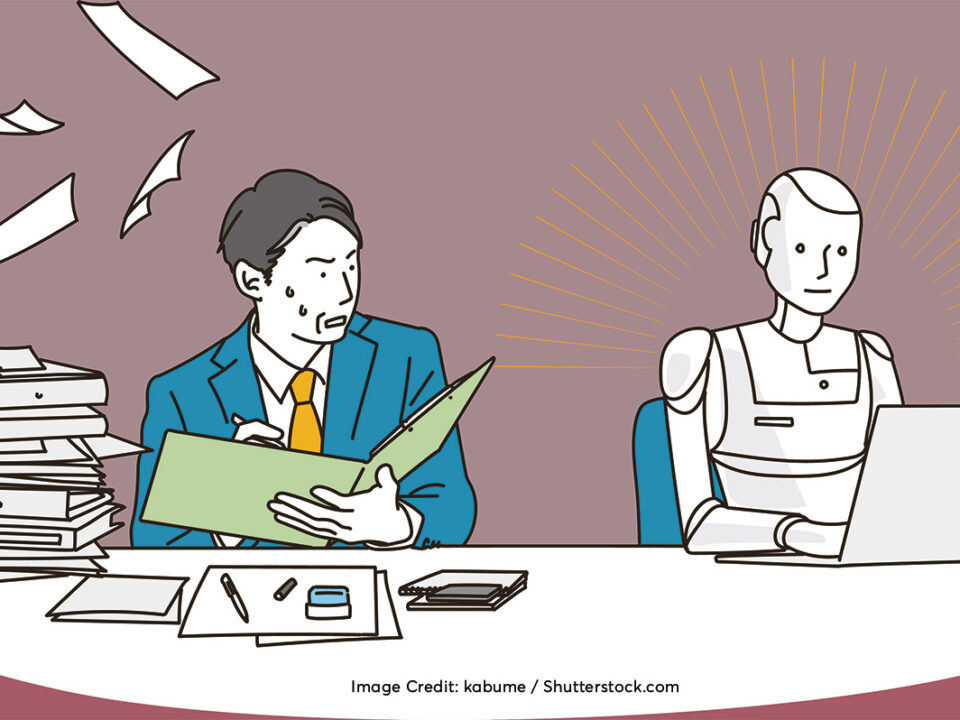“The future of work is rapidly changing, and the integration of artificial intelligence (AI) is playing a big role in transforming the way we work. In the coming years, AI will continue to have a significant impact on the workforce, with the potential to create both new opportunities and challenges for workers and businesses alike. One of the most significant ways in which AI will impact the future of work is by automating many routine and repetitive tasks. This will likely lead to job displacement in certain industries, particularly in those that rely heavily on manual labor or data processing. However, it is important to note that AI will also create new opportunities for jobs that require more complex problem-solving skills, creativity, and emotional intelligence.
Another area that will be impacted by AI is the skillset required to be successful in the workforce. As automation continues to take over repetitive tasks, workers will need to focus more on developing skills that cannot be easily replicated by machines. These skills include critical thinking, creativity, communication, and collaboration. Additionally, workers will need to become more comfortable with technology and be able to adapt to new tools and software. To prepare the workforce for the changes that AI will bring, reskilling and upskilling will be critical. This means that workers will need to continually develop new skills and knowledge throughout their careers to remain competitive in the workforce. This may require investment in education and training programs that are specifically designed to prepare workers for the jobs of the future.”
These are the thoughts of ChatGPT, the open-source AI that rocked the foundations of society and economy. Thoughts which the majority of the population wouldn’t have realized that were produced by artificial intelligence in just a few seconds. As ChatGPT stated, it was “happy to help” and answer my questions regarding the future of work, and, with the process of critical thinking, asked me further questions in order to draft a piece closer to my desired approach: “What specifically do you want to know about the future of work and startups? Do you have any specific questions or areas of focus in mind?” With targeted input from my end, including the factors and my desired point of view, ChatGPT worked further, resulting to two paragraphs of critical thinking, based on millions of online sources – text, video and images – and not based on the information of my burnt-out brain (from working too much), which is struggling to store information for tasks like these.
When I realized that my thoughts, expertise and critical thinking could be easily translated into a 1000 text produced by open AI technology, which is accessible to anyone, just by inserting the right questions and variables into a single text box, I was startled at first but then realized the new possibilities it could open accelerating my professional endeavors.
Envision a future where machines would act as human beings with critical thinking, an ethics code, and sense of efficiency and service. The best employee. Predictable, obedient, accessible and low cost.
Such technological developments are met with distrust and a sense of fear for the unknown unfolding – revolutionary. A revolution that has come to shake the foundations of the modern Vitruvian Man as we know it. Business Insider just published a list of professions, which will most probably be replaced by AI. Truth being told, as a professional working in the center of innovation, we have been observing AI technology for almost a decade doing an intern’s work, drafting due diligence and reviewing certifications and documents for the legal industry, doing a marketeer’s work reviewing the digital presence of corporations. Those working in the tech and startup industry have been working towards expediting such advancements aiming to enforce efficiency, supporting the hard work of members of an industry that is characterized by burn-outs, flexible working conditions, limited resources and multitasking.
AI is greatly introduced as an evil machine that could effectively start a war against humankind, with the ability to start a nuclear war. Sounds familiar? Those SciFi movies don’t sound as science fiction anymore, right? ChatGPT has been available to the public for just a few months, but managed to shake the foundations of global markets, urging leaders of the private and public sector to alert societies regarding the opportunities and risks of AI taking over basic functions of society and economy. Elon Musk in response to the vast developments of AI and Microsoft acquiring ChatGPT, called for a six-month pause in developing systems more powerful than OpenAI, alarmed by the potential risks to society, only to launch his own venture later in the AI-verse, with a mission to find the ultimate truth. Google’s CEO in a recent interview stated that the advancement of AI technology is greater than the discovery of fire, hinting that society and businesses are not prepared for the impact these advancements will bring. He added that jobs would be disrupted, including knowledge workers, such as writers, accountants, architects, doctors and software engineers. The competitive pressure amongst the tech giants to be ahead of the market, will ultimately accelerate the development of the capabilities of AI technology at a much faster pace than the economy and society can follow and adapt to.
AI is already great at answering customer support questions, drafting business plans and advising individuals, who are trying to start their own company. A Goldman Sachs research found that AI tools could impact 300 million jobs worldwide, disrupting the global labor market. Business Insider introduces how professionals can boost their productivity with AI and tech tools, whilst also introducing the professions that could be potentially replaced by machines, including coding, data analysts, advertising, content creation, journalism, legal industry professions, teachers, finance jobs and trading, graphic designers, customer service and many more. The public is discussing how white-collar jobs will soon become obsolete, while others predict the future of AI as a liberator of the average employee from boring and uncreative tasks, offering a way out to a more sustainable lifestyle for the working class. Imagine a captain, traveling the seas, away from his family, for over 10 months a year, soon having the chance to return to his/her family after reviewing the autonomous vessel navigation, which is equipped with ultra-HD 3D cameras, LIDAR technology, image-based AI, autonomous routing based on 6G technology and geolocation and predictive navigation adjusting to weather conditions and special circumstances. And this person, all he/she must do is to review all these functions through an interactive control center using live data and zero latency. A liberated person from the challenges of the sea, returning every night to his bed and family. Revolutionary.
During 2012, $12 billion had been raised by EU startups, with countries like Estonia, Iceland, Sweden, Switzerland, UK, Finland amongst the most investment-happy countries, driving innovation and tech development. Startups are a rising factor of social-economic wealth, offering flexible employment styles and remote working. As startups are in the center of Europe’s future economy and society, requiring talent and skilled employees, they also offer and foster training to communities, building innovation-centered ecosystems enabling new business models and working conditions.
The startup industry is also disrupting the talent market, attracting highly skilled individuals, experts in coding, product development, technology, accounting, marketing, etc. The industry bridges the gap to access wealth across regions, with increased employability opportunities and remote working options. Since the startup industry is considered high risk for their ventures’ viability versus traditional corporations, they have created an environment with benefits and perks in order to attract talent, providing increased incentive, including stock options, remote working, free meals, entertainment rooms, free dress codes and many more. These best practices have a ripple effect transforming traditional corporations, who are in a competition race to attract engage talent.
There are several ways, where governments and society could prepare the workforce for the advancements of technology and the uprising of the startup scene, including targeted training programs to cultivate technical skills and soft skills such as critical thinking, problem-solving, and communication; fostering an entrepreneurship culture and mentorship promoting design thinking and innovation; promoting diversity and inclusion. As technology and automation impact the workforce, societies should develop an environment to ensure that displaced workers affected by technology and automation have access to programs and resources, such as unemployment insurance, healthcare, and job placement services. A comprehensive and proactive approach is important in order to prepare the workforce for the advancements of technology and the uprising of the startup scene. Focusing on education, entrepreneurship, reskilling and upskilling, diversity and inclusion, and social safety nets, ensuring a future of work, is both innovative and reinforcing.
As ChatGPT advised “Overall, the future of work and startups presents both opportunities and challenges. While AI has the potential to create a more efficient and productive workforce, it also has the potential to displace workers and exacerbate existing social and economic inequalities. To ensure a more just and equitable future, it will be important to invest in education and training programs, as well as social safety nets that protect workers who may be negatively impacted by automation.”
-
 Maria Gabriella Anagnostopoulos
Maria Gabriella Anagnostopoulos
Chief Operating Officer, Envolve Entrepreneurship Startup & Investments Advisor




